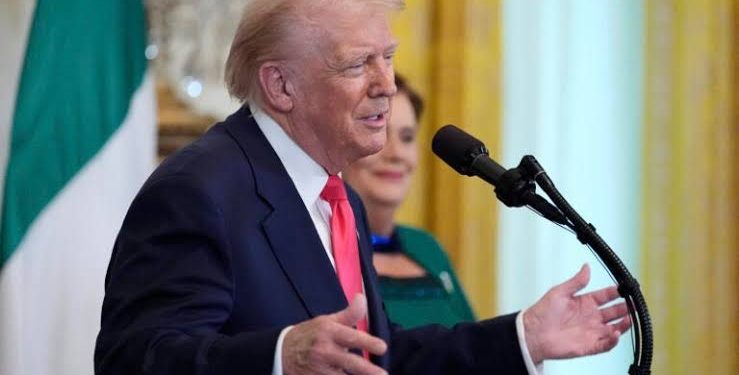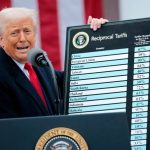The United States government has officially enforced a 15 percent import tariff on Nigeria and several other African nations, signaling a significant shift in trade relations. A statement from the White House confirmed the decision, which was issued Thursday through an Executive Order titled “Further Modifying the Reciprocal Tariff Rates.” Effective from 12:01 a.m., the tariff applies to all goods entering the US from the affected countries for consumption or withdrawn from warehouses for the same purpose. Alongside Nigeria, countries such as Zimbabwe, Zambia, Uganda, Mozambique, Mauritius, Ghana, Malawi, Lesotho, and Madagascar are subject to the same rate, while South Africa and Libya face even steeper tariffs at 30 percent, and Tunisia at 25 percent. Other nations outside Africa, including the United Kingdom (10 percent), India (25 percent), and Japan (15 percent), were also listed.
This development follows an earlier Executive Order issued in April 2025, where the US signaled its intent to impose broad import tariffs across several global trade partners. At the time, the administration justified the move as a necessary step toward rebalancing global trade and ensuring what it termed “reciprocal fairness.” According to the White House, the current trade regime grants too many concessions to foreign nations without equivalent access for American goods and services.
Trade experts across Africa have raised concerns about the long-term implications of these new tariffs, warning that they could disrupt supply chains, weaken export earnings, and slow down economic recovery efforts. Many of the countries targeted are key players in the African Continental Free Trade Area (AfCFTA), a regional bloc focused on boosting intra-African trade and attracting global partnerships. The US tariffs now risk undermining that momentum by making African exports less competitive in one of their most strategic markets.
In Nigeria, manufacturers and exporters—particularly in textiles, agriculture, and light manufacturing—are already expressing concern. These sectors, which rely heavily on foreign buyers, may struggle to remain viable under the weight of new costs. Analysts have warned that the 15 percent tariff could lead to canceled orders, reduced production, job losses, and a drop in foreign exchange inflows. A Lagos-based trade consultant noted that small and medium-sized enterprises (SMEs) will be among the hardest hit, as they often lack the financial resilience to absorb such economic shocks.
Several African Union (AU) officials have also criticized the move, calling it a setback for multilateralism and international development. They argue that imposing blanket tariffs on developing countries—many of which are still recovering from the economic impact of the COVID-19 pandemic and high debt burdens—demonstrates a lack of regard for global equity. While the US claims to be enforcing fairness, African policymakers contend that the global trade playing field has never been even, and such aggressive measures only worsen inequality.
Efforts by some African countries to secure exemptions or temporary relief appear to have been unsuccessful. Following the April 2025 announcement, several African trade ministries entered into consultations with US officials, hoping to protect critical sectors or delay enforcement. The final order in August, however, indicates that those discussions yielded little progress.
The United Nations Conference on Trade and Development (UNCTAD) is expected to weigh in on the matter, as African countries consider how to respond—potentially through the World Trade Organization (WTO) or by accelerating trade partnerships with other regions. Meanwhile, governments across the continent are advising exporters to explore alternative markets, strengthen regional supply chains, and enhance competitiveness within the AfCFTA framework.
As global trade becomes increasingly influenced by national interests and protectionist policies, the US decision has reignited a broader debate about Africa’s place in the global economy. While the continent has long depended on Western markets, some economists are urging a pivot toward economic self-reliance and deeper South-South cooperation. For many, the tariffs serve as a wake-up call for Africa to build stronger internal trade mechanisms, invest in value-added production, and reduce its vulnerability to external policy shocks.










